

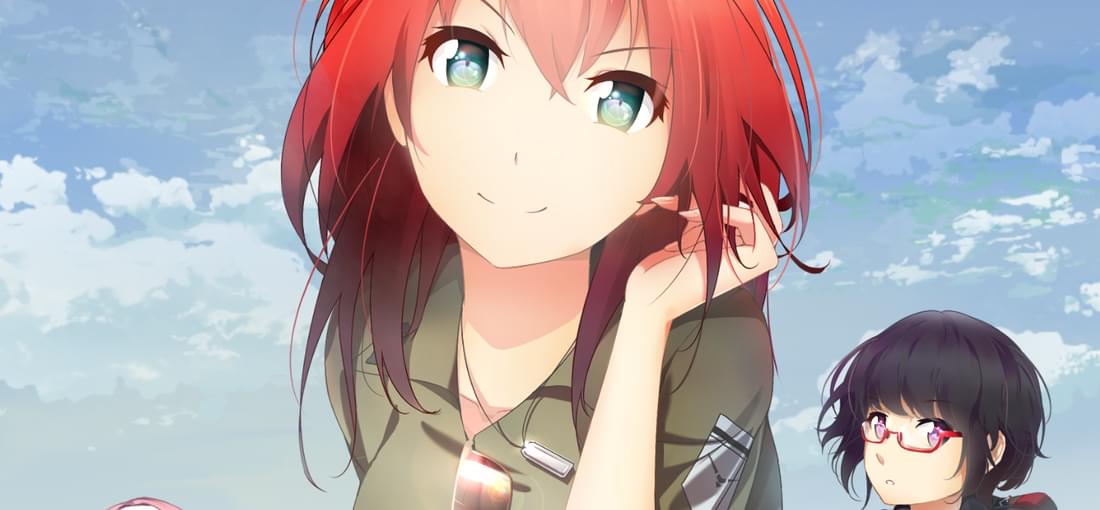
Nice art, catchy music, generally likable stock characters, competent and reasonably polished dialogue, decent but underdeveloped story, engaging gameplay, well-presented image gallery. Gameplay-wise, you've got a month to prepare for a big boss fight and woo everyone you can. You're encouraged to date around, raising your relationship status with everyone by completing quests, going on patrol, training to raise your stats, giving gifts, and going on dates. Everything costs either energy or money, so it's a bit of a puzzle to optimize your route through the game. Story-wise, the tone fluctuates: your companions all have a soft and silly side, but they've also got tragic backstories that make a lot of the dates kind of depressing, and you're in the middle of a life-or-death conflict. There's one ending for each love interest, plus bonus endings if you romance either everyone (which is difficult but doable) or no one. Really, you're developing close friendships and then seeing a snapshot of the after story; this is not a salacious VN by any means, aside from a few adult jokes. There's occasional profanity, some mature themes, a handful of revealing outfits (mostly in the DLC), a provocative event CG or two, and no blood. The turn-based combat is standard RPG fare, but you need to prepare well and switch strategically between weapons and armors to survive. It's fun but repetitive; you need to grind a LOT for money, and half of what you can buy isn't worth the price (eg, don't bother buying combat support from your patrol buddies outside the final battle). Normal costumes are expensive and don't stay permanently unlocked, so it's worth having the DLC costumes; however, the game forgets your DLC costume selection when loading a save. You can toggle voice acting for individual characters, but there's no option to skip seen dialogue or auto-advance the text. You can only save at certain times, which means beating the final boss 7 times to see all 7 endings. :(
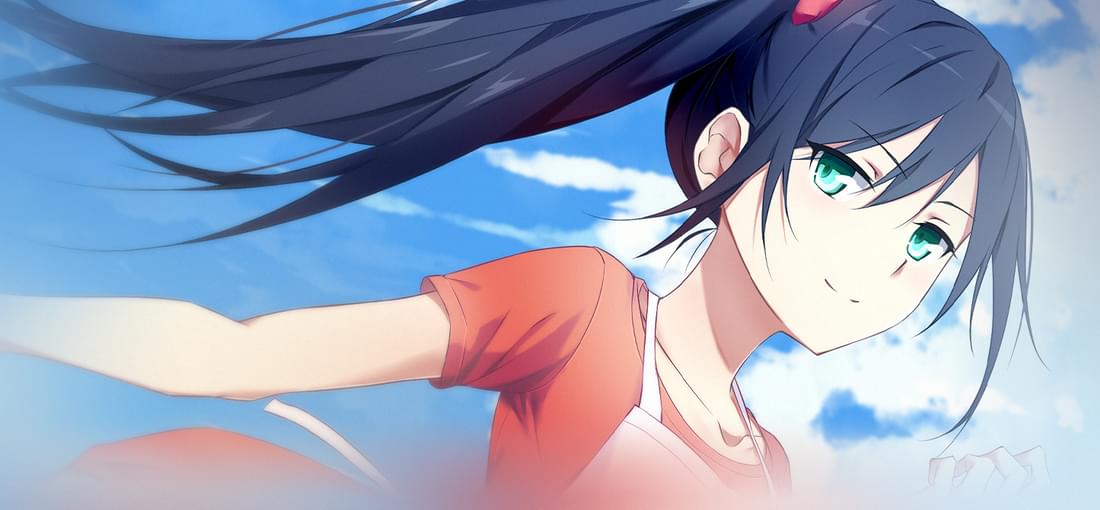
Two things to note: (1) Valerya Chapter is a separate executable, not something you unlock from the main game. (2) Unlike the main game, it's a straightforward visual novel. No stats, no combat, no shopping. Valerya Chapter falls extremely short of the standards set by the main game, to the point where I wouldn't even recommend it to diehard fans. First, it lacks the same polish in the dialogue. The writing/translation/editing of the English text is very rough; there's a distracting number of glaring typos, the phrasing frequently feels unnatural, and the characters don't have the same personality. Valerya in particular doesn't have much of a personality at all, and she's the central character! Second, it feels like a collection of deleted scenes that were deleted for a reason. Valerya Chapter adds nothing of value to the story, extensively rehashing and even retconning cutscenes and plot points from the main game. There are only four new CG scenes, three of which are the same image with a different number of donuts on a tray! What little genuinely novel content there is feels like filler, and Valerya feels less like a new love interest and more like a parrot repeating things you already know. Her revised role in the story strains credibility, too. Third, the whole game only has two dialogue options, which are presented in quick succession and are absolutely pointless. They barely affect the next sentence, let alone the rest of the game. This should've been a kinetic novel instead. At least there are new options to control text speed and enable auto-text, but the options pertaining to text skipping seem to be broken. Fourth, it's missing the voice acting and some of the language options of the main game. Fifth, the Gallery is incomplete. Finishing the game unlocks a character bio for Valerya, but there's no Wardrobe tab to view her different poses and outfits like in the main game. The whole thing feels ill-conceived, contrived, and unfinished.
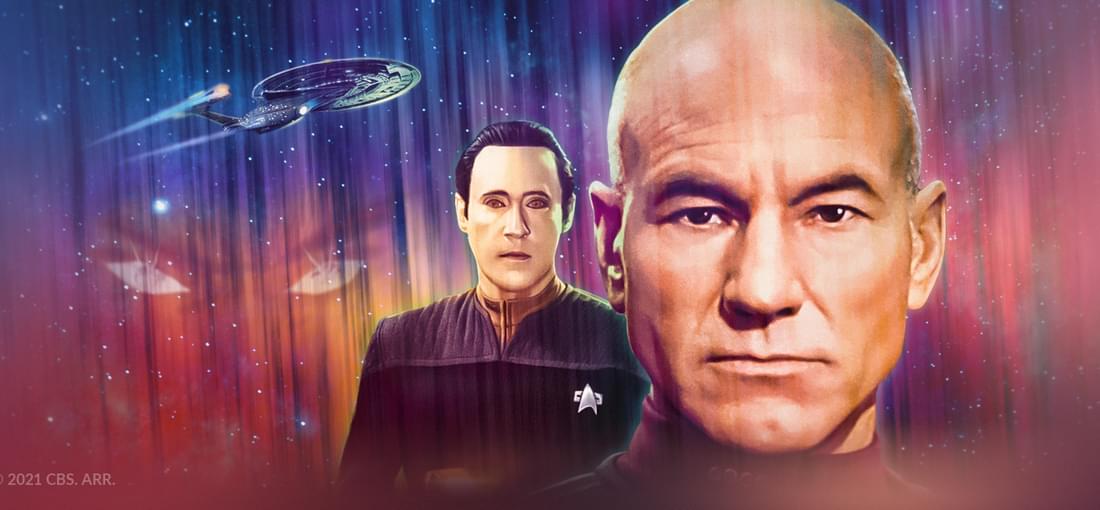
If you're a Star Trek fan and enjoy (or don't mind) tank controls, fixed camera angles, and an occasionally creepy vibe that are reminiscent of the early Resident Evil games, Hidden Evil is definitely worth a look. It's accessible to non-fans, too, but probably not as appealing. The game takes place after the events of the film Star Trek: Insurrection. Although the story could be improved (especially toward the end), the attention to continuity is definitely there. The sound effects, music, and dialogue all feel authentically Trek. Patrick Stewart, Brent Spiner, and several other Star Trek actors such as Salome Jens and Greg Ellis lend their voice talents to the game. Plenty of little details, from Picard tugging on his jacket in a cutscene to the fact that the main menu looks like a tricorder, further enhance the Trek feel. As far as gameplay is concerned, it's a good mix of combat and puzzle-adventuring. Combat is really clunky due to the sluggish tank controls and a slow rate of fire, but that's balanced out by auto-aiming, well-paced health refills (which can be saved for later), enemies that usually don't hit too hard, frequent opportunities to avoid combat altogether if you're clever, and the ability to save anywhere. The puzzle-adventure elements are varied, decently intuitive, and well suited to a Trek game; my favorites are a mundane steam vent puzzle with a truly inspired solution, and the mission where you liberally administer Vulcan neck pinches while cloaked. The graphics are very much a product of their time, and the keyboard-only controls aren't configurable, so there might be an adjustment period if you're used to more modern games. The biggest issue is that the game is prone to hard crashes. I was booted out to the desktop two or three times when ending a mission, and my entire computer froze at one point during normal gameplay. Overall, I'm willing to put up with the rough edges because this is very much what I want out of a Star Trek game.
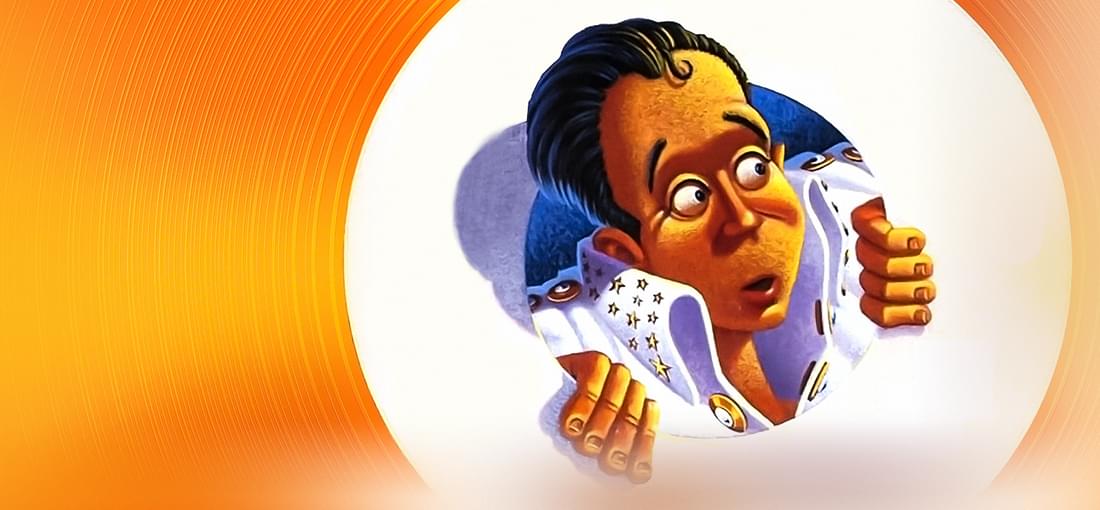
If you're a diehard fan of early '90s adventure games and at least somewhat familiar with the legacy of Elvis Presley ("The King" for whom Les Manley is searching), I can softly recommend this game. Otherwise, it's best to skip it. The graphics are excellent for this era of adventure games, with plenty of detail and character. Sound effects are nonexistent, but the catchy soundtrack makes up for it. The absurdist, fourth-wall-breaking, occasionally referential humor is right up my alley, though I could do without a few questionable jokes poking fun at foreigners. The puzzles all involve items, dialogue, or the environment; often require tedious investigation for all the info you need; and tend to be more comedic than logical. The text parser interface is not the best I've seen, but it's also not the worst. It recognizes a variety of basic commands and synonyms, but it's easily confused by nonessential interactions, and it's very particular about the commands required to solve dialogue puzzles. It's extremely easy to dead-end the game in an unwinnable scenario. Critical items can be permanently overlooked or wasted on the wrong solution, but aside from a vague hint about missing some items when you enter a new area, it's never apparent until it's too late. The game's greatest weakness is its lack of clear objectives and long-term goals; unless you're clairvoyant or willing to restart/reload a couple dozen times, you WILL need a walkthrough. Also, there are a couple ways to die, none of them gory. People compare this to Leisure Suit Larry, but the similarities don't extend much farther than the "lovable loser" protagonist. Adult content is limited to a couple mildly dirty jokes, a few glimpses of women in somewhat revealing outfits, and one skippable scene with very brief nudity/sexual content. NOTE: In the GOG version, copy protection is simplified so you don't need to consult the manual, and the National Inquirer newspaper is missing from the extras.
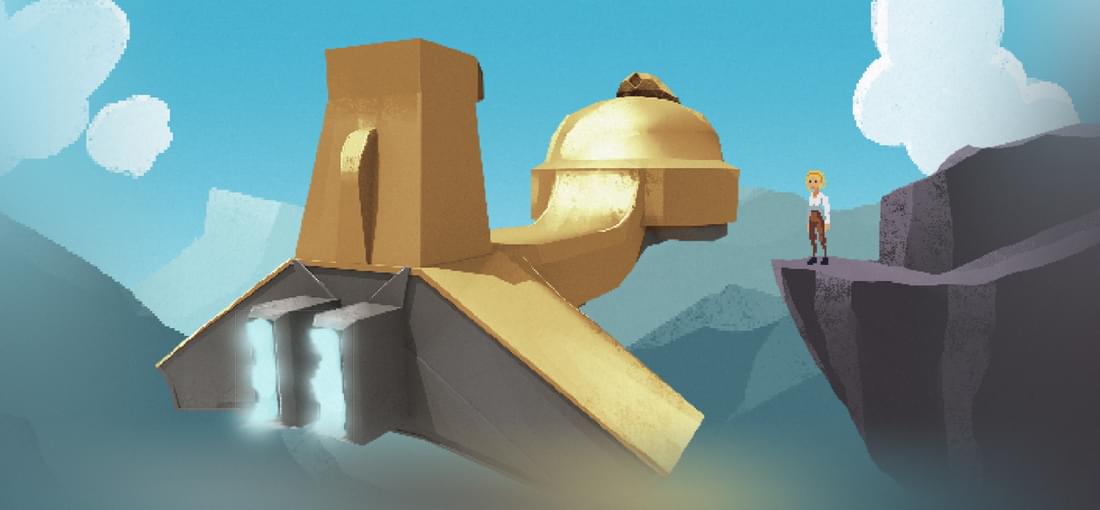
A well-themed story, bittersweet, with interesting folks to meet. Lovely art with gorgeous landscapes; rhyming text with subtle japes. Atmospheric music both tense and soothing, and no risk of death or losing. Challenges are rarely obtuse, mostly dialogue choices and item use. Clues are hidden in the text if any puzzles have you vexed. Still, some late-game puzzles left me sore, otherwise I'd like the game more. A couple glitches dampened the mood: one softlock and respawning wood. The ending left me almost satisfied; some minor plot threads felt untied. None of the shortcomings ruin the game, but they're worth reporting just the same. Overall, I was pleased and impressed. All this by one person? Who would've guessed! Just the right length, charming, thoughtful, and fun; this is the way adventure games should be done. If this much rhyming you can endure, I'd recommend the game for sure.
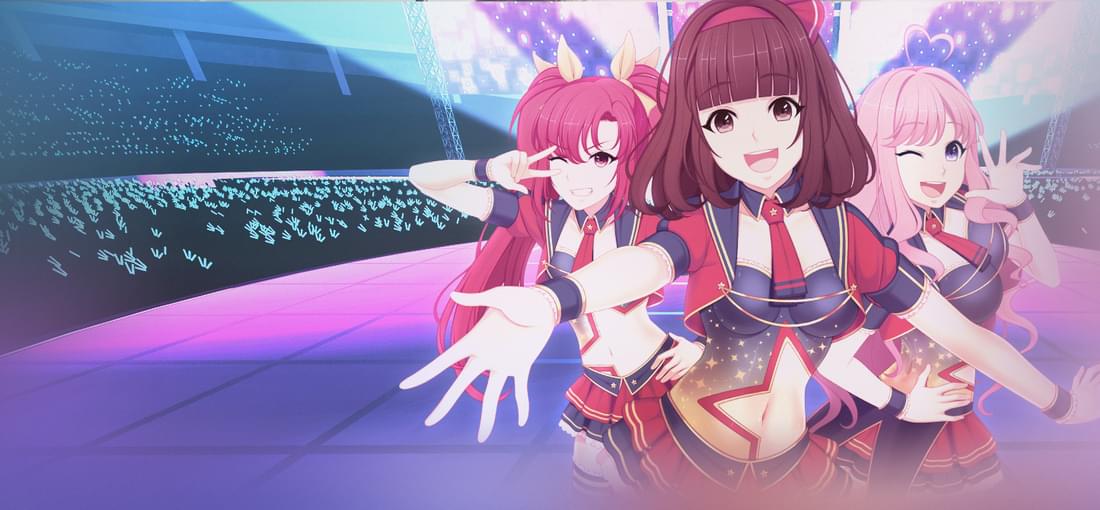
What to expect: - A kinetic novel for the first half, with one major decision that branches into multiple paths. Each path has one key choice that determines a good or bad ending, plus possibly a throwaway choice that briefly adds flavor to the current scene. - Roughly 10-40 hours of gameplay, depending on how fast you read and how many endings you go for. - A story that simultaneously celebrates and tears down the Japanese idol industry, blending serious drama with lighthearted comedy and social commentary. - Discussions and/or depictions of potentially triggering topics, including mental illness, abusive humiliation, stalking, pedophilia, and sexual assault; some bloody violence; pervasive swearing; and frequent sexual content. The GOG edition censors the nude scenes and completely removes the explicit sex scenes; however, this can be undone with the Denpa Edition patch, which is free to download on the developer's website. - Archetypal characters (eg, the self-insert protagonist, the innocent girl next door, the country bumpkin, the sinister rival producer) who end up having more complex personalities and backstories than they let on. If you've played any of the Sunrider games, you'll notice a lot of similarities at first. - A polished interface, clean art style, and varied soundtrack (though not as many vocal tracks as one might expect for an idol game). - Several menu options and features, including a CG art gallery and the ability to toggle Japanese voice acting for each character individually. What I think: - Pros: The story is engaging and surprising, the aesthetics are nice (I'm fond of the CG backgrounds and colorful, easy-to-read font), and the game as a whole generally feels professional. - Cons: The story sometimes gets longwinded, there's a lot I dislike about the characters, and I'm unsure whether some emotional payoffs are worth all the depressing and uncomfortable stuff. I have mixed feelings, but your mileage may vary.
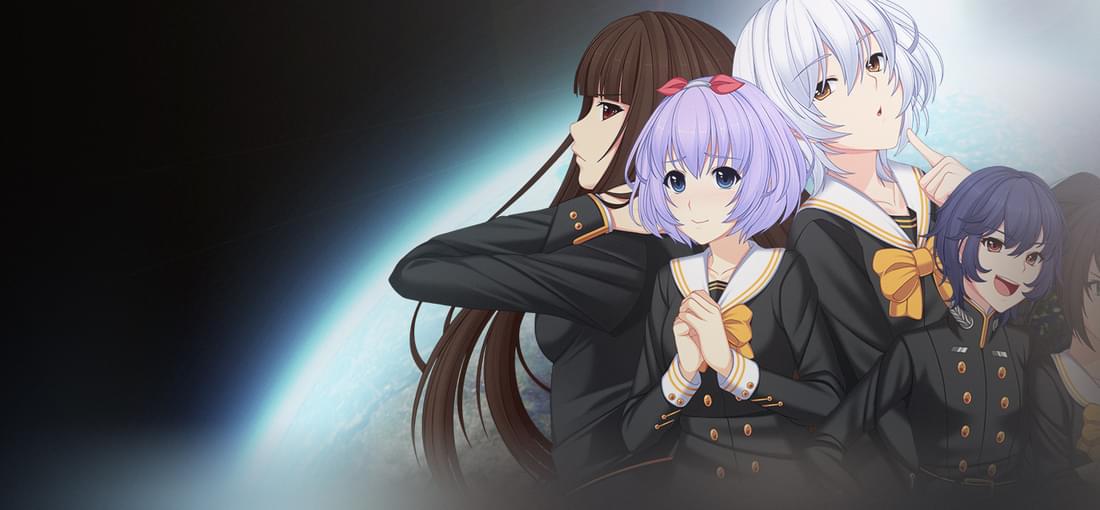
2/5 for the Liberation Day main story; 4/5 for the [RE]Turn afterstory. It's absolutely necessary to play Sunrider: Mask of Arcadius first. The beginning of this game is what should've been the ending of the last one, and the first battle is way too complicated to serve as a tutorial, so the game is completely inaccessible to newcomers. The quick infodump in the first cutscene barely helps. Mask of Arcadius (MoA) is about gaining allies, trust, and combat advantages, and having freedom of choice; Liberation Day is about losing those things. You can import your save from MoA, but it only remembers your story choices, not your upgrade purchases—I spent half the game raising enough money to customize my units like I had them before. To ensure the samey combat remains difficult, units and abilities keep being taken away from the player. Worst of all, you have no say whatsoever in how the story plays out. The main story is all but completely devoid of choices. The characters spiral out of control with jealousy, mistrust, idiocy, romancing the Worst Girl, and other completely avoidable problems. The choices from MoA mostly seem to affect your combat options, offering only a little bit of narrative flavor. It's only at the very end that this game starts to feel like the Sunrider I signed up for. [RE]Turn is what saves the game for me. It's a purely choice-driven story that acknowledges the main game's flaws with a wink and a nod...and gives you the power to rewrite history. Meaningful character interactions; 18 different endings. Fun. 3D art looks fabulous; character art is very polished, though I do prefer a few characters in the old style. Menus are laggy and cumbersome; combat is streamlined but less personal. English voices need to be fixed: Asaga never stops talking, and battle cutscenes interrupt in Japanese. NOTE: The game contains profanity, bloody violence, nudity, and explicit sexual content, and can be fully decensored with the free Denpa Edition patch.